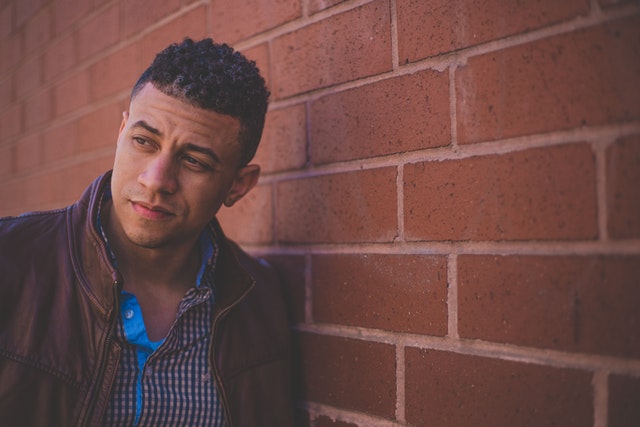Trauma Therapy
Does Some Part Of You Feel Stuck In The Past?
Are the lingering effects of trauma negatively impacting how you think and feel?
Do you engage in self-sabotaging behaviours, such as using substances, to numb your pain?
Have relationships with family, friends, or coworkers suffered due to the walls you’ve built to protect yourself?
Living with unresolved trauma can feel like you’re in a constant state of threat.
Because of the way trauma impacts your nervous system, you might experience flashbacks, nightmares, or panic attacks whenever you’re reminded of what happened. Or perhaps your trauma manifests in physical symptoms, such as chronic pain, headaches, sleep disruptions, or digestive issues.
Unresolved Trauma Might Cause You To Pull Away From Friends And Family
Trauma can erode trust in yourself as well as others, making it difficult to maintain healthy relationships. If you keep loved ones at bay rather than letting them in, you might suffer from your symptoms with no support, which only compounds the isolation you feel.
Without a sense of safety keeping you grounded in the present moment, you might vacillate between anxiety, anger, guilt, or internalized shame. If only you knew how to free yourself from the haunting memories of your past, you could live in a healthier, fuller way.
The good news is that trauma therapy can give you the tools to manage debilitating symptoms so you can get through your day more productively. In counselling, you can build trust with a therapist who will safely and gently help you process your trauma so it no longer casts a shadow over your life.
Trauma Can Affect Anyone
Unfortunately, trauma is a common human experience. According to Canadian government statistics, “About 8 percent of adults have moderate to severe symptoms of Post-Traumatic Stress Disorder (PTSD). This percentage is higher among women than men and highest among people aged 18 to 24.” [1] In addition to documented cases of PTSD, it’s believed that most trauma goes unreported.
Trauma does not discriminate based on relationship status, career, living situation, education level, gender, or age range. Traumatic events that often cause us to seek counselling include physical or sexual assault, accidents, natural disasters, war, interpersonal violence, and childhood abuse or neglect. In addition to these “Big T” types of trauma, smaller, more subtle forms of “little t” trauma can also negatively impact us, such as being raised by an emotionally unavailable caregiver or being bullied at school.
The Ways Canadians Are Impacted By Trauma
In 2021, the most commonly reported causes of PTSD in Canada were “sexual assault, followed by life-threatening illness or injury, accidental death, and physical assault.” [2] Additionally, for decades, our indigenous communities have faced generational trauma stemming from the impact of colonization, forced assimilation policies, and the residential school system. For Canadians who have experienced social and economic inequalities, discrimination, and systemic injustice, the trauma they’ve endured often leads to negative outcomes, such as mental health disorders, substance abuse, or addiction.
Unfortunately, the effects of trauma can be hard to manage alone. The emotional, cognitive, and physical aspects often intertwine, making it challenging to untangle and address each aspect independently. Without professional guidance, we may struggle to fully understand the complex interplay of factors contributing to our trauma.
Trauma counselling allows someone to walk beside you, helping lift the heavy weight you may carry alone. The therapists and coaches at Project Heal have the tools and expertise to help create a tailored treatment plan for you to address trauma and PTSD.

Contact Us
Therapy Can Allow You To Release Your Trauma And Breathe More Freely

We understand that it can be hard to ask for help if you feel too scared to reach out. The haunting memories of trauma may cause you to freeze and disconnect from the world around you. However, with counselling, you can learn effective ways to manage the symptoms of trauma, allowing you to fully embody the person you want to be.
Therapy for trauma and PTSD provides a safe and supportive space to explore, process, and heal from your experiences. A therapist or coach can help validate your feelings by acknowledging that your reactions to trauma are normal responses to abnormal events. By normalizing what happened, therapy reduces feelings of shame and isolation. In addition to learning how to identify triggers—situations, thoughts, or other stimuli that evoke traumatic reactions—we can help you develop healthy coping mechanisms to manage overwhelming emotions and stressful reactions.
What To Expect In Sessions
Initially, we will collaborate with you to determine what goals for therapy you have. Your treatment plan will be individualized based on your unique needs, strengths, and challenges. We will help address your most pressing concerns and, once you feel more comfortable, delve into the underlying issues of your trauma.
Understanding your trauma history is a crucial part of therapy. You will be encouraged to gradually explore and share your experiences, allowing the therapist to help you process and make sense of your narratives. Building emotional regulation skills is also a key component of healing. We will work on recognizing and managing intense emotions, finding healthy outlets, and developing tools to navigate emotional challenges effectively.
We Tailor Treatment To Address The Symptoms Of Trauma And PTSD
With a trauma-informed approach to therapy, your counsellor or coach will utilize evidence-based techniques and modalities to reduce symptoms and help process traumatic memories in a controlled and supportive manner. In addition to breathwork, meditation, and the compassionate inquiry approach developed by Gabor Maté [2], your therapist may use:
- Psychodynamic Therapy for trauma and PTSD
- Trauma-Focused Cognitive Behavioural Therapy (CBT)
- Eye Movement Desensitization Reprocessing (EMDR) therapy for trauma
- Internal Family Systems (IFS) for trauma
- Acceptance and Commitment Therapy (ACT) for trauma and PTSD
- Dialectical Behavioural Therapy (DBT) for trauma and PTSD
- Exposure Response Prevention (ERP) for PTSD
- Rapid Trauma Resolution Therapy (RRT) for PTSD
- Somatic Experiencing Therapy for trauma and PTSD
- Mindfulness for trauma
At Project Heal, we are on a mission to heal the planet, one client at a time. We know how hard it is to live with trauma—therapy offers a safe, non-judgmental space to process your pain so you can overcome your challenges and find a path forward that feels lighter, freer, and more authentic to who you are.
Maybe You’re Not Sure If Trauma Therapy Is Right For You…
It’s common for trauma survivors to fear judgment or misunderstanding from others. However, rest assured that a counsellor is a specialist in trauma and PTSD who takes a non-judgmental and empathetic approach. They will create a safe and confidential space where you can share your experiences without fear of criticism or misinterpretation. Establishing a trusting relationship will be crucial—that’s how we zone in on your issues, bring them to the surface, and begin the healing process.
Understandably, the fear of intensifying emotional distress can make you reluctant to seek support, but therapists trained in trauma-informed approaches will prioritize your well-being. Trauma therapy will become your safety zone. Your therapist will introduce gradual and gentle techniques for exploring trauma or PTSD, ensuring that the process is paced according to your readiness. Techniques, such as grounding exercises and self-regulation tools, are integrated into trauma treatment right away to manage the emotional intensity you may be feeling.
Your trauma counsellor will collaborate with you to set safe boundaries and determine the appropriate pace to set the therapeutic process. Therapy sessions will be tailored to respect your readiness for exploration and healing. Because the process can take time to build trust and gain comfort, you will never be forced to move faster than you want to.
With Therapy, There Is Hope
Let us help you free yourself from the impact of trauma. If you would like to find out more about trauma therapy with Project Heal, please call 778-323-8997 or visit our contact page to set up a free, 15-minute consultation today.
[1] https://www.canada.ca/en/public-health/topics/mental-health-wellness/post-traumatic-stress-disorder.html
[2] https://www150.statcan.gc.ca/n1/daily-quotidien/220520/dq220520b-eng.htm
[3] https://compassionateinquiry.com/
Recent Posts
Could You Be Suffering from PTSD? The Most Common Symptoms Explained
Post-traumatic stress disorder, also known as PTSD, is often associated with military veterans after experiencing combat. Over the years, it has been discovered to affect not only veterans, but also anyone who has experienced a traumatic event.

